Receive Focus insights straight to your inbox
South Africa's socio-political landscape is highly complex and dynamic. This poses challenges for wealth managers and investors when assessing potential market movements and safely navigating the prevailing risk factors.
More importantly, the country finds itself at an inflection point. Swift and immediate action is needed to avert a Moody's downgrade to junk and revive a flatlining economy. In this perilous era, wealth managers must carefully consider the political, economic and social factors at play to preserve and create wealth for clients.
To help determine whether the light that currently shines at the end of the tunnel is the country's salvation under President Cyril Ramaphosa's administration or merely the oncoming train that will finally derail the economy, a panel of experts offered their insights at a recent Investec Wealth & Investment event in Pretoria.
Political paralysis
Author and political analyst, Dr Ralph Mathekga, unpacked the unfolding ANC power struggle and characterised the country's current predicament as a political impasse.
The main issue – the elephant in the room – is why President Ramaphosa is not taking a decisive “sledgehammer approach” by dictating what government will do to rescue struggling state-owned entities (SOEs), said Mathekga.
The challenges include Ramaphosa's lack of a decisive mandate from the Nasrec conference and ongoing power battle within the ANC between the 'radical economic transformationists' and the 'reformists'.
While Ramaphosa won the leadership battle, he has to negotiate with a political party that retains its traditionalist culture, where the collective drives policy decisions.
Complicating matters is the fact that when the ANC is divided, COSATU and the SACP become emboldened, more demanding and hard-line. The reality is that Ramaphosa is isolated within the ANC, battling divisions, as well as shifting opposition dynamics, said Mathekga.
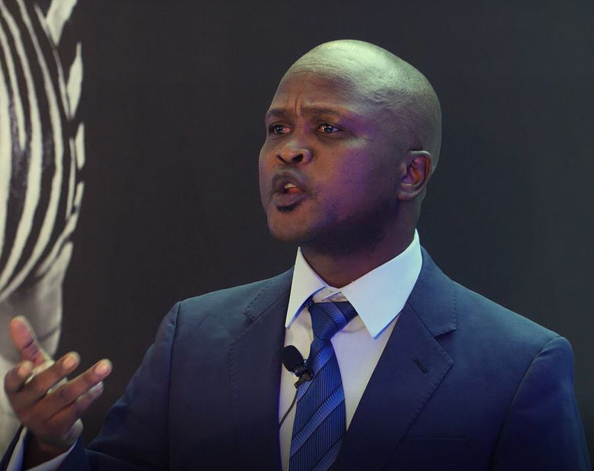
The EFF and Freedom Front Plus, they are the same in a different way, if you like. They are both pitching on the extreme side of the political spectrum. If growth in South Africa's politics is beginning to be concentrated in the extreme parties, the DA gets pushed to be extreme, seeking that growth.
Shifting political dynamics
The result of the latter is that the country's policy space is becoming more tense. Mathekga explained that the DA's poor electoral performance amid rising populism and extremism from the EFF and FF Plus has forced a shift within the country's main opposition party.
This is pushing the DA to abandon its centre politics and take a more extremist stance to seek new growth. By doing so, the party will stop driving progressive politics, which is changing how the opposition can influence policy.
It also leaves the ANC at the centre as the only moderate political party in the country and necessitates that it shops around for compromise to implement policy. This creates a new political bargaining system because there is no longer a grand majority to deliver consensus.
Let the wheels of justice turn
Primary in this regard is taking action against corrupt politicians to demonstrate there is accountability and consistency under Ramaphosa.
However, Prof Thuli Madonsela, Law Trust Chair in Social Justice and law professor at the University of Stellenbosch, cautioned that the president must not get involved in deciding who goes to jail, as this will mark the end of a proper judicial system – it is a conflict of interest and interference.
“The president must simply get out of the way and allow the NPA under the new NDPP to do its job and ensure it is adequately resourced.”
Investing in an environment of trust
Accountability is an important step to restore trust and build business confidence, which Chris Holdsworth, Chief Investment Strategist for Wealth & Investment at Investec, affirmed was vital to stimulate economic growth.
“Business confidence is the key indicator for private sector job creation – when it's low we don't get a lot of jobs and, unfortunately, business confidence is at all-time lows. As a consequence, while the US is adding up to 200,000 jobs a month, South Africa has lost 5,000 jobs in the last 12 months, while 500,000 more citizens are looking for work,” explained Holdsworth.
However, Madonsela said she believed a strategic private-public investment approach that promoted investment into wards or communities to stimulate innovation and promote entrepreneurship would create more work opportunities than government-only growth initiatives, as it would empower people to work for themselves.
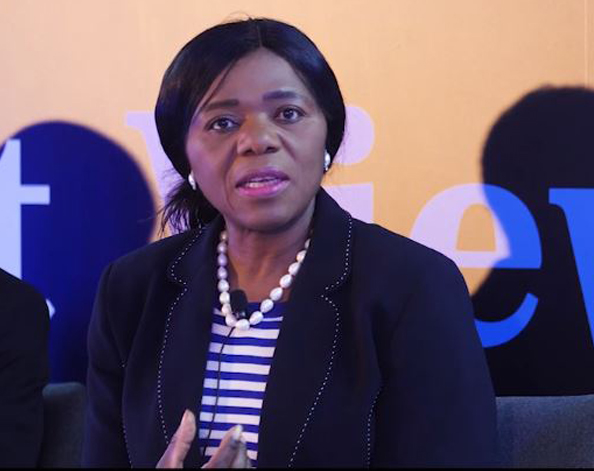
People keep saying the President should make sure that people go to jail. The day President Ramaphosa gets involved in deciding who goes to jail will be the end of a proper judicial system.
Business confidence at historic lows
Boosting the economy requires private sector support, and according to Holdsworth, low confidence means corporates aren't spending.
This is most evident in South Africa's lagging capital equipment lifecycle – currently the longest since the fallout from the Rubicon speech – because corporates aren't investing to replace ageing machinery and equipment.
While there is demand and capacity to do so, this is more a factor of confidence as companies are sitting on cash but are unwilling to invest without more certainty. Consumers are taking a similar approach, which continues to constrain spending – a key economic driver.
Holdsworth explained that South Africa historically attracted investment, specifically in the equity space, despite poor macro numbers because of excellent corporate governance, but Steinhoff shattered that.
What foreign investors want is evidence that the rule of law will be applied and that people who broke the law, be they from Steinhoff or SOEs, eventually wear orange jumpsuits.
Youth radicalisation
The resultant slow pace of change and reform is driving voter disengagement, where an increasing number of poor people are no longer participating in the elections, explained Mathekga.
When the majority in a country with this level of inequality no longer believe that the formal voting process delivers what they want, they become disengaged and are likely to withdraw from their social license.
Madonsela added that social injustice brought us Zuma and that social injustice is going to bring us something worse than Zuma if we don't act.
“Where President Zuma ignored business, President Ramaphosa, with due respect, is ignoring the people,” she stated.
If this status quo remains, Mathekga believes more people will become radicalised, particularly the youth, which he believed should be a major concern. What the country needs is action to deal with this problem, particularly addressing its roots in inequality.
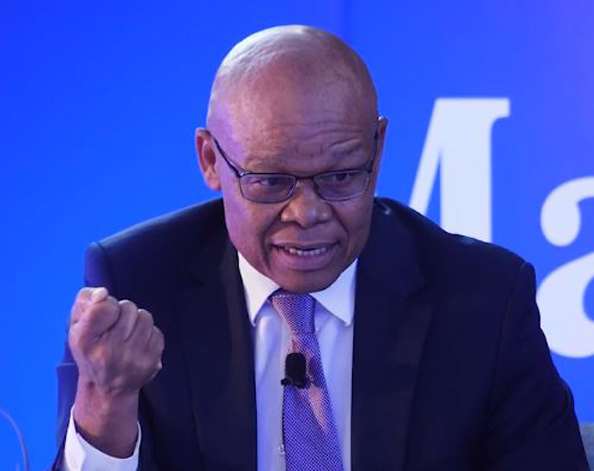
Government alone cannot solve the problems of Eskom. The private sector has the capital. It has the skills and it has the courage that the politicians don't have to tackle difficult things.
The role business has to play
Despite what the numbers say, Investec joint-CEO, Fani Titi, was not as pessimistic about the country, despite what the numbers say.
“Failure is not inevitable. There is a level of intervention possible that can stave off what seems like the inevitable. We continue to take a different perspective about the country and have a longer-term view. We look at the volatility of daily news, but we plan for the next 30, 40 years. What I see today is the likes of Investec building resilience, capital bases and skills that can make
us more successful if there is a turn in the economy.”
Unlocking the pent-up capacity will also require strong indicators that government is committed to doing the right things, whether it's unbundling Eskom or relaxing onerous visa regulations.
What the country required to stimulate more investment and restart the economy, particularly from foreign investors, was action from government to instil confidence.
Titi said he believed Eskom should top the action-item list, for numerous reasons. “Firstly, any economy that is going to grow will require power to support industry and economic growth, which is why Eskom is critical to our economy.”
Government needed to make the tough calls, like trimming bloated wage bills at SOEs, which had social consequences, but the consequences for inaction were more dire for the country.
However, Titi asserted that government alone cannot solve Eskom's problems. “If government stands behind the R450-billion debt and takes that onto the balance sheet of the country on a permanent basis, we will certainly get a credit downgrade, and if we do that, we're going to be in trouble for the next 10 years.”
Titi's suggested solution was to invite private sector participation in Eskom's generation business because the private sector had the capital, the skills and the courage to tackle the difficult tasks that the politicians were unable to address.
Moody’s downgrade already priced in
Taking bold action in this regard can raise the state's credibility, both with the market and ratings agencies. While Moody's continues to give South Africa a ratings reprieve, Holdsworth explained that the market downgraded the economy a long time ago.
Foreign investors have already priced in that the country is junk status, which is why South Africa's borrowing costs exceed those of a country like Brazil, where the economic metrics and fundamentals are far worse.
Investors aren't looking at the Moody's rating, which is why the pending downgrade is largely priced in already.
Potential tax hikes loom
With less capital or more expensive borrowing costs, government will need to find other funding sources.
In this regard, Holdsworth asserted that Treasury recognised the consequences of raising taxes. “Companies will relocate, which erodes the corporate tax base, and raising VAT affects the poor, which is why personal income tax is their primary mechanism.”
However, Treasury is aware that raising these taxes is no longer as effective as it used to be because it incentivises people to work less or tax compliance suffers. Either way, the result is a revenue shortfall.
Holdsworth expected a combination of tax increases to plug the widening shortfall. These are likely to take the form of bracket creep for personal income tax and an increase in fuel and plastic bag levies and sin taxes, but there's little scope for new taxes.
The other option cited by Holdsworth was raising capital by selling some of South Africa's 700 SOEs or other resources, like auctioning spectrum to telcos.
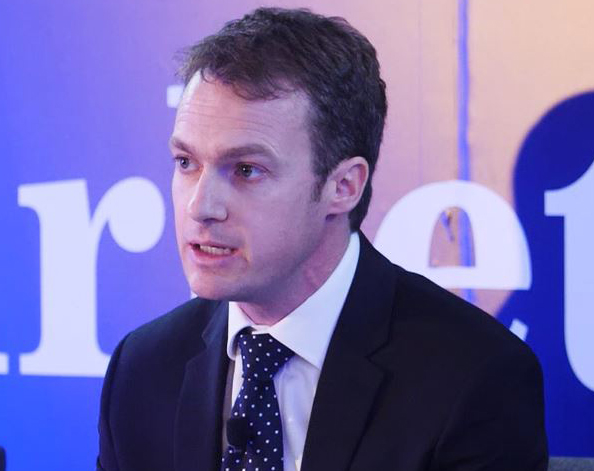
Corporates have not been investing. There is demand from corporates to do so, there's capacity to do so, there's cash on their balance sheet, the problem is that's lacking, is confidence.
Global movement towards purpose-driven businesses
Beyond government interventions, Titi highlighted the role businesses should play by blending profit with purpose.
“At the moment in the business world there is this whole movement around purpose. 40 or 50 years ago, a firm's purpose was to maximise profits. Today, it's not only to maximise profit but also to support the growth of the economy and the communities we serve. As a businessman, I look to create an opportunity for profit, but profit with a conscience, understanding that we can change the world.”
Titi believed harnessing the motive for profit would lead to efficiency, which would lead to better capital allocation which businesses could align with their social consciousness.
Prof Madonsela built on this need for a new investment ethos in South Africa, highlighting how the US invested in Europe following the Second World War to create stability. This investment was required to arrest rising poverty in the region, which Madonsela explained operates exponentially, and catalyse economic prosperity.
“If you don't fix it fast, it just gets worse and inequality does the same thing; it operates exponentially.”
South Africa finds itself in a similar situation. Madonsela believed the country needed to invest to undo what apartheid did to create stability in our country.
Remaining optimistic
Even as South Africa approaches a fiscal cliff, Titi remained hopeful that the country would be forced to make the right decisions to avert disaster.
“I'm hopeful that the cliff will force us to make the right decisions, not necessarily because we are the best people and we can figure out solutions, but simply because the consequences are too ghastly to contemplate. I'm hopeful and as leaders we have to try create hope.”
About the author
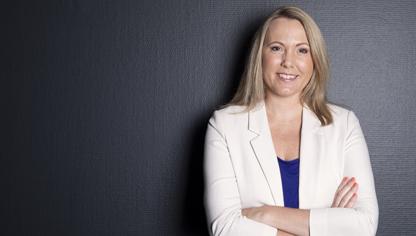
Ingrid Booth
Lead digital content producer
Ingrid Booth is a consumer magazine journalist who made the successful transition to corporate PR and back into digital publishing. As part of Investec's Brand Centre digital content team, her role entails coordinating and producing multi-media content from across the Group for Investec's publishing platform, Focus.




